Finally, we have completed the series A round fund-raising which was a long way to come, so now we are ready for the next stage, we gathered major shareholders and board members who are able to travel to Cambodia, our management team from India, all staff and BUDDY (AGRIBUDDY’s Rural Agents) members and selected farmers from Cambodia to conduct a team building conference.
AGRIBUDDY has shareholders not only in Japan, but in Cambodia, Singapore and Denmark. The board members are scattered throughout Japan, Cambodia, India and Vietnam. Because we are developing business in India and Cambodia, each of the senior management team has little opportunity to interact with each other. Furthermore, most Cambodian team members are not acquainted with our board members and do not understand the concept of shareholders in the first place. The main aim for this program was to provide opportunities for each of them to interact in real life and to provide a platform to understand what kind of people are involved in AGRIBUDDY’s business and their respective positions.
In my opening session, I spent about half of the time to explain how the shareholders support AGRIBUDDY, introducing shareholders who joined us and asked Mr. Okubo and Mr. Krishna for a short speech and helped the members grasp an image of the management team.
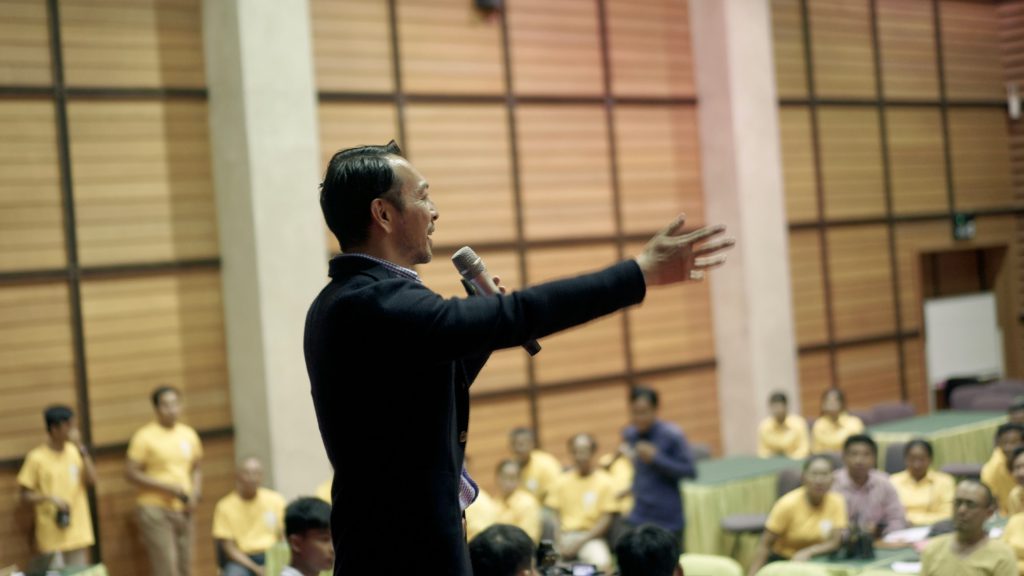
Of course, I cannot speak Khmer at a level that is understandable, so I asked Mr. Pak who is the managing director to Cambodia for an interpretation.
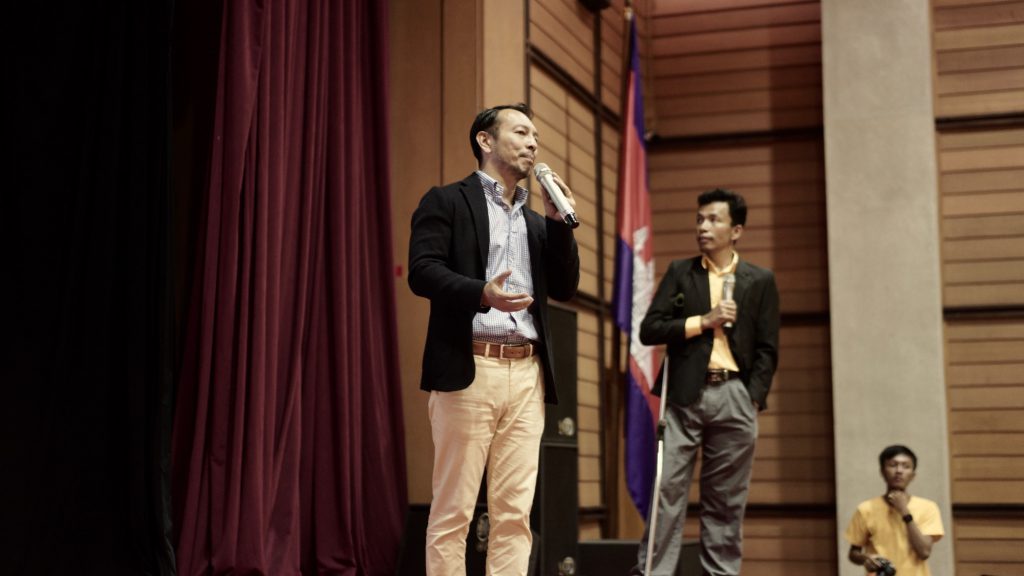
Unfortunately, two of the five board members were unable to participate but we were able to welcome two board members from Tokyo.
One was Mr. Okubo, who I mentioned in my last article.
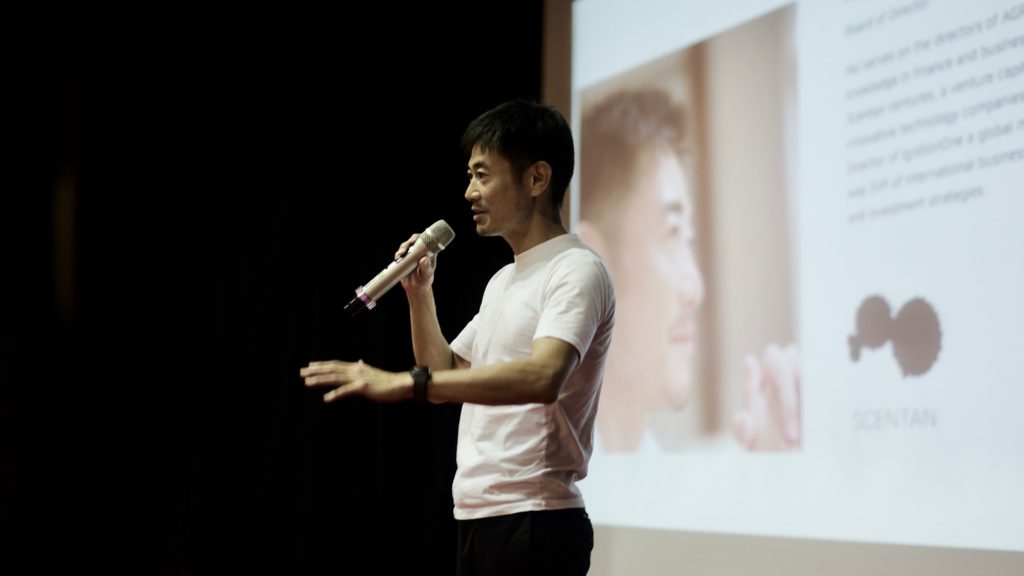
It was the first visit to Cambodia for Mr. Krishna. He came directly to the venue from the airport.
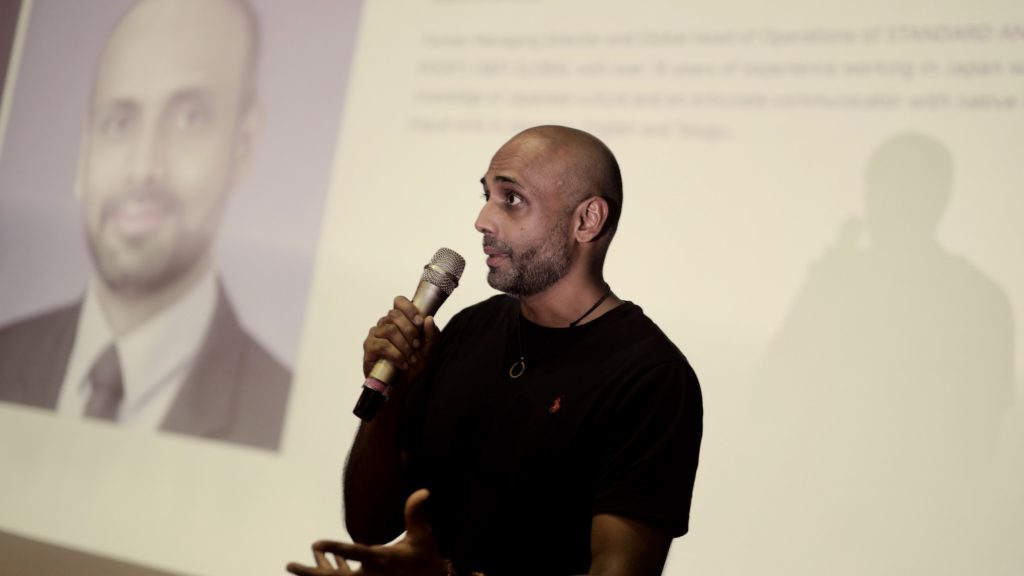
Here is a speech by Mr. Boran, CEO of AMK which is a local financial institution and one of AGRIBUDDY’s strongest partners.
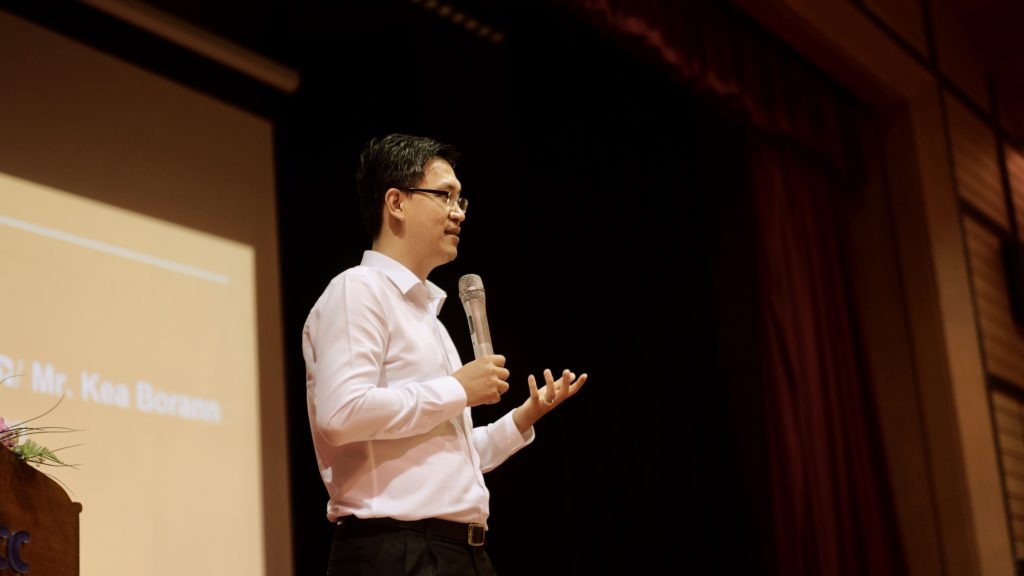
AMK originally started as a Christian NGO micro finance institution after the civil war in Cambodia, initially they employed only Christians, but they faced shortage of human resource, so they decided to employ people from other religions . Mr. Boran was the first “non-Christian employee” at AMK, his parents were poor and could not raise their children, so he was sent to a local temple. He studied English there, and was hired by AMK for his language skills. After joining the company, he studied accounting and after a lot of hard work he is now the CEO of a financial institution that has over 600,000 customers.
After the introduction, Mr. Pakk made a presentation about AGRIBUDDY’s progress, current situation and the future goals. He also made an introduction of our field staff, BUDDY and farmers who gathered from various provinces of Cambodia.
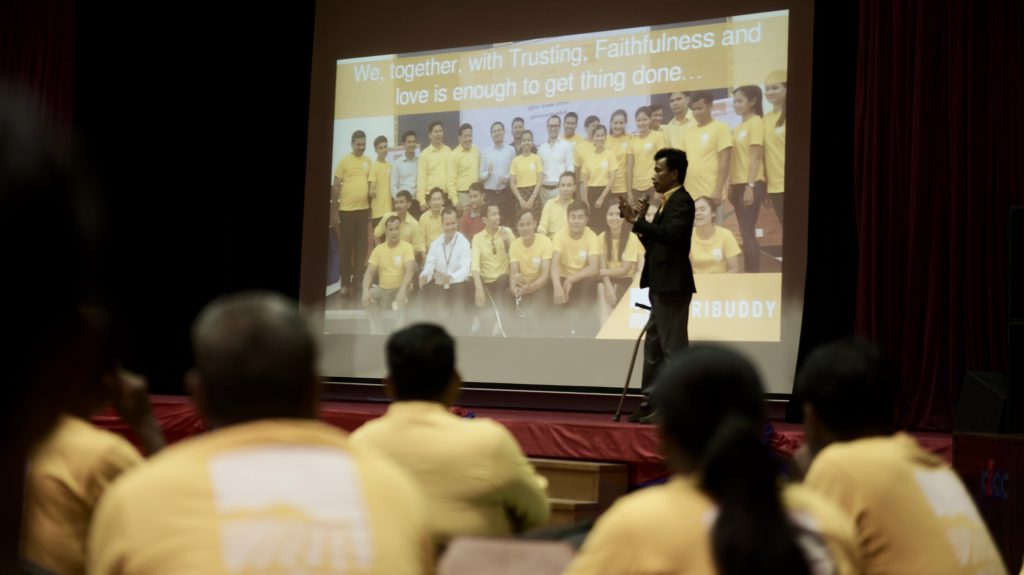
A short speech by the farmer’s representative and the local staff of AGRIBUDDY followed.
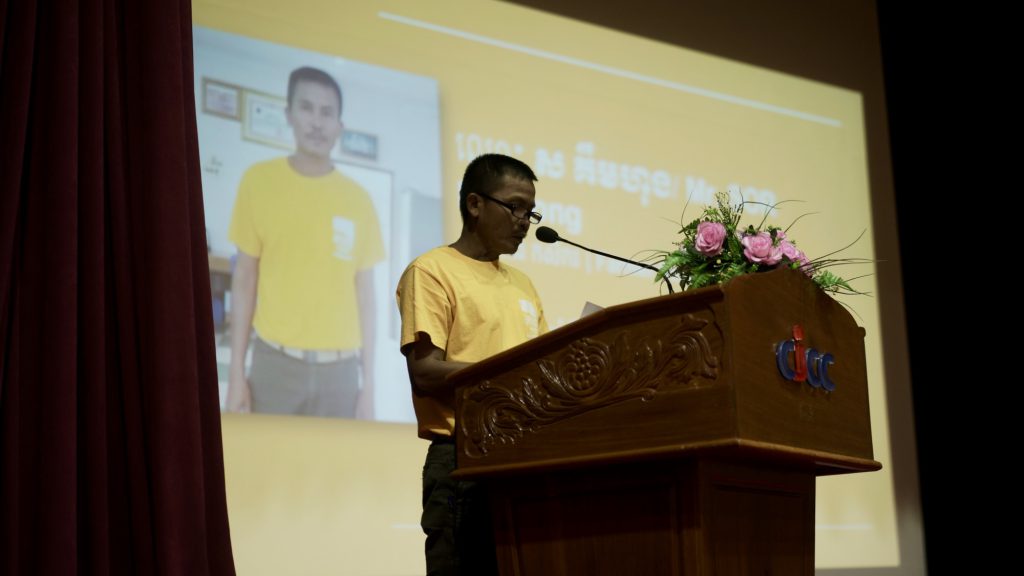
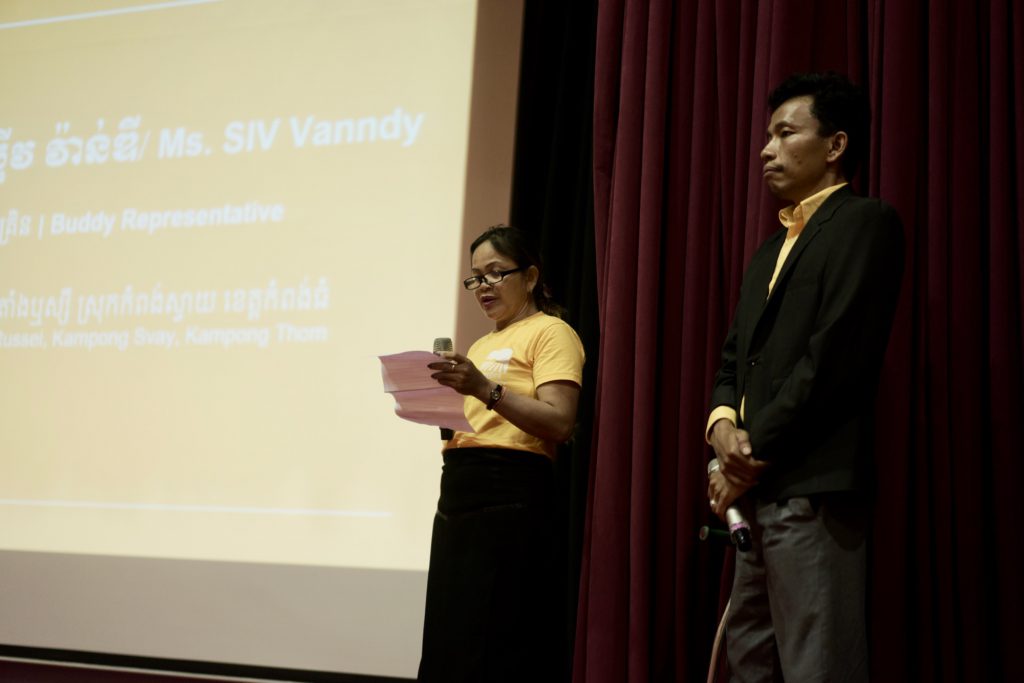
AGRIBUDDY ‘s field staff representative, Mr. Chan was a former section head of the Polpot army.
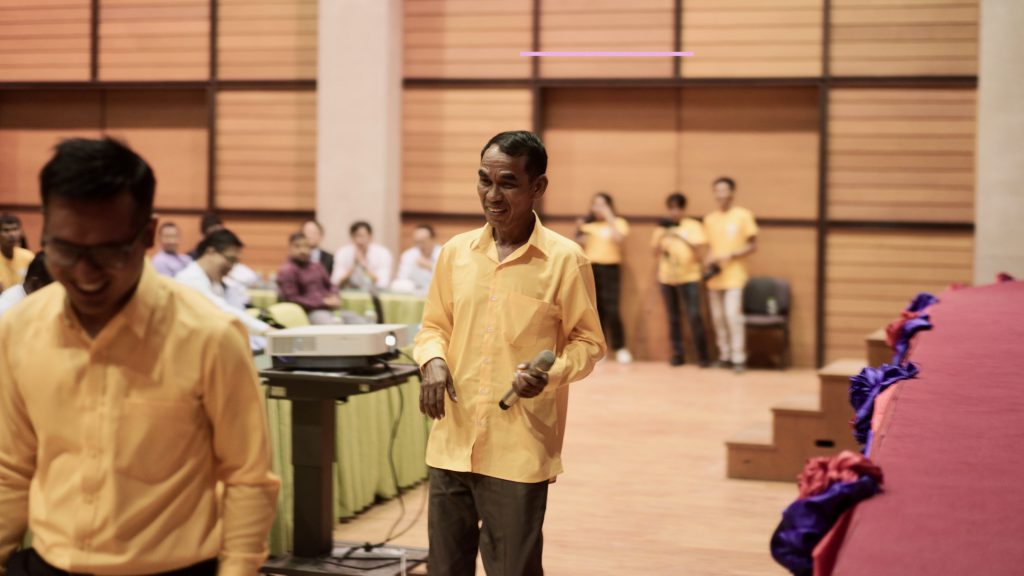
Polpot denied education, so it is obvious that he could only go to school for a few years, but despite his age (mid-fifties) and the fact that he is an average farmer living in a rural area, he is very eager to accept new opportunities. He is diligent and sincere and also a mood maker who is loved by everyone. Even though he didn’t know the alphabet when we first met, he now collects farmers’ data using his smartphone, he once sent me a message in Japanese using Google Translate and I was deeply touched by that. This is why I can’t stop working on this project, because I can see the moment when someone’s life changes, and this really motivates me.
Next, we had a Q&A session with AGRIBUDDY’s partners and farmers.
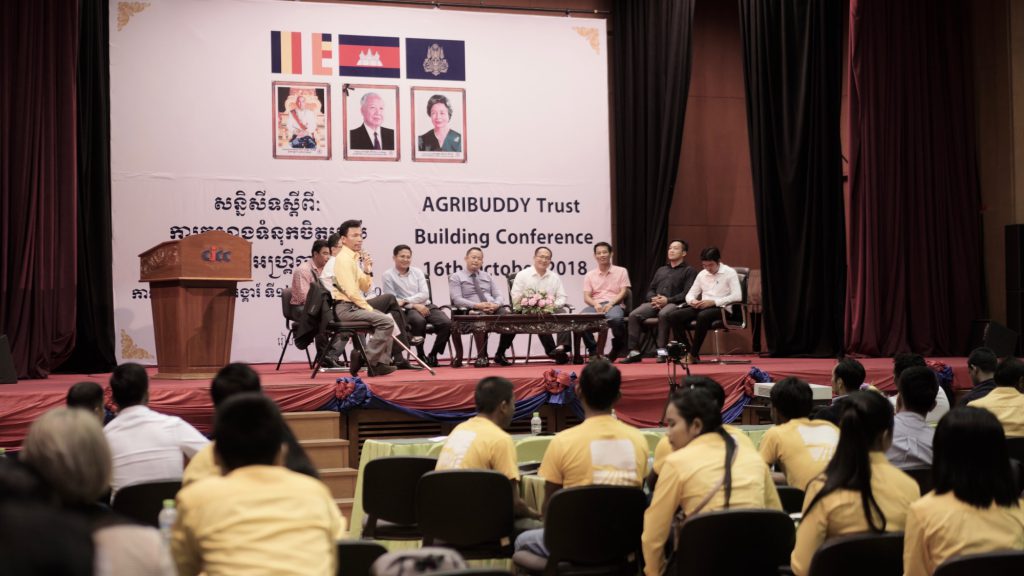
There isn’t much opportunity for farmers in remote areas to talk directly with the CEO of a microfinance institution, grain buyers, or agricultural material manufacturers because they live in a narrow world both physically and socially. Despite the fact that each business operator is related to agriculture, there is no way of contact with people other than in their own area or circle. So, this is the first time that they had the opportunity to connected with each other directly.
Actually, all the discussions were conducted in Khmer except for the speech made by myself and the board members, so I couldn’t understand what was going on 80% of the time. Despite that this company was founded by myself and I am currently managing the business as chief executive officer and this conference was my idea….
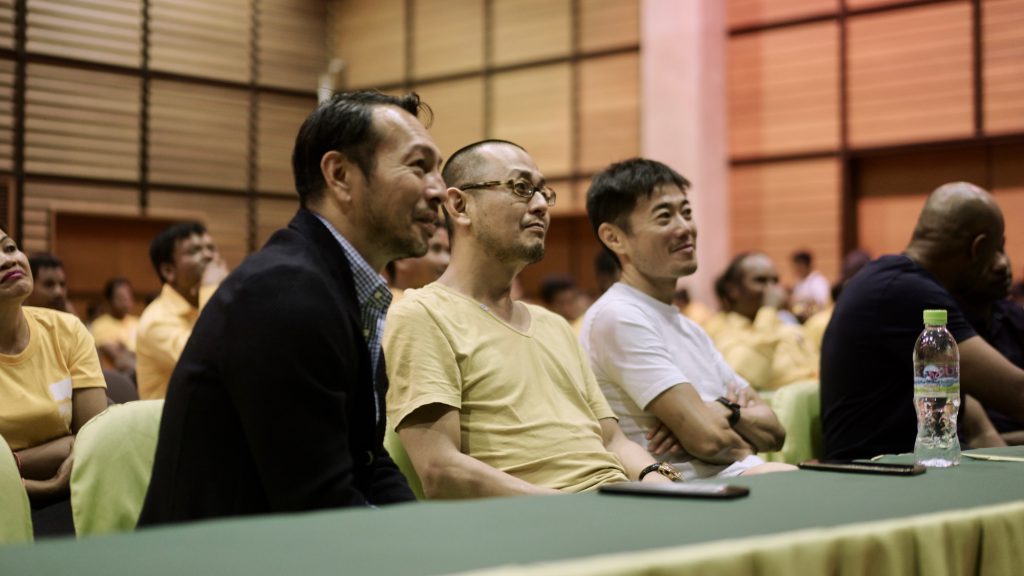
Well, I often go to rural areas and often do not know what the farmers are saying, so I am familiar with this situation, but as I was watching the conference progress objectively, I was wondering “How on earth did we get where we are today, how did the company grow like this?”. Because my (the founder) English is quite broken, probably only half of the attendants at the conference understands what I am saying, yet still everybody at the conference can communicate and discuss how AGRIBUDDY will improve farmers and the circumstances surrounding them.
The confidence in my skill set was my ability in communication in Japanese. I think that I am a person who likes to communicate, is also good at explaining and talking to people about things. I also like to read books and I think that my writing skills aren’t so bad wither. But that is all in Japanese. Certainly, I can communicate in English at a decent level but compared with a lot of other English natives, my ability is very limited, and my reading and writing skills are terrible. Of course, it gets worse in Khmer, my five-year-old son speaks much better Khmer than I do… Despite doing business here where I cannot use my skills, the business has done well so far. It makes me think that if I was able to communicate in Khmer in the same way as my Japanese, would the business have grown further?
The answer I am sure would be “No”.
That is because I can express only about the most important thing that I want to get the message through, and I guess I can do that without any bias because of my limited language skills. When there are more words, the most important thing you want to express can blur, the actions behind the words and expressions or feelings become invisible.
I was able to see through such facts through the conference and I was touched to see all these people believe in our business and future prospects and I was really happy to be able to connect people in various positions. From now on I would like to continue to hold such a conference at least once a year, so that I can provide a whole new encounter and experience for the farmers and BUDDY who are living a limited life with little change and don’t have much opportunity to leave their villages.
